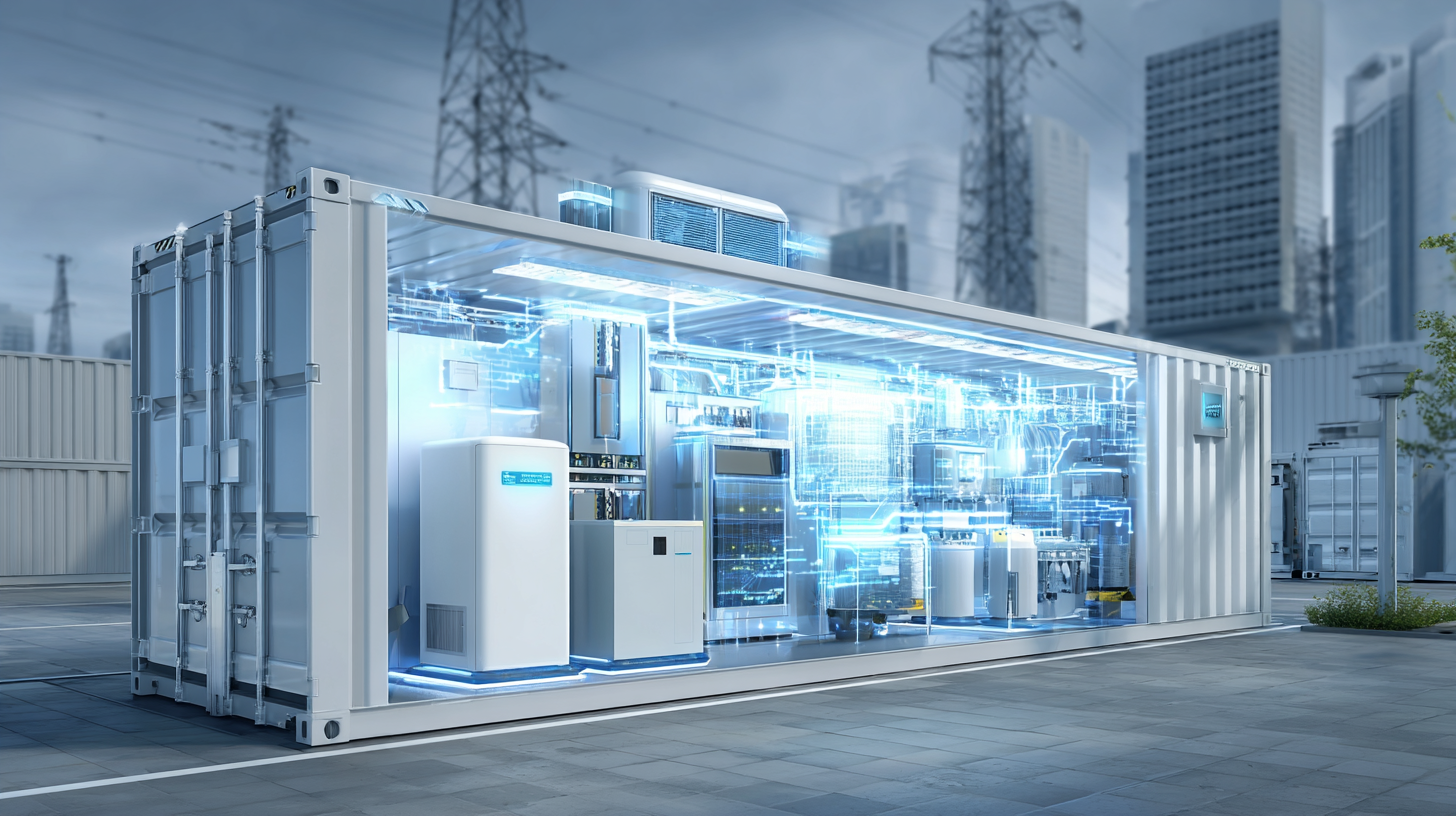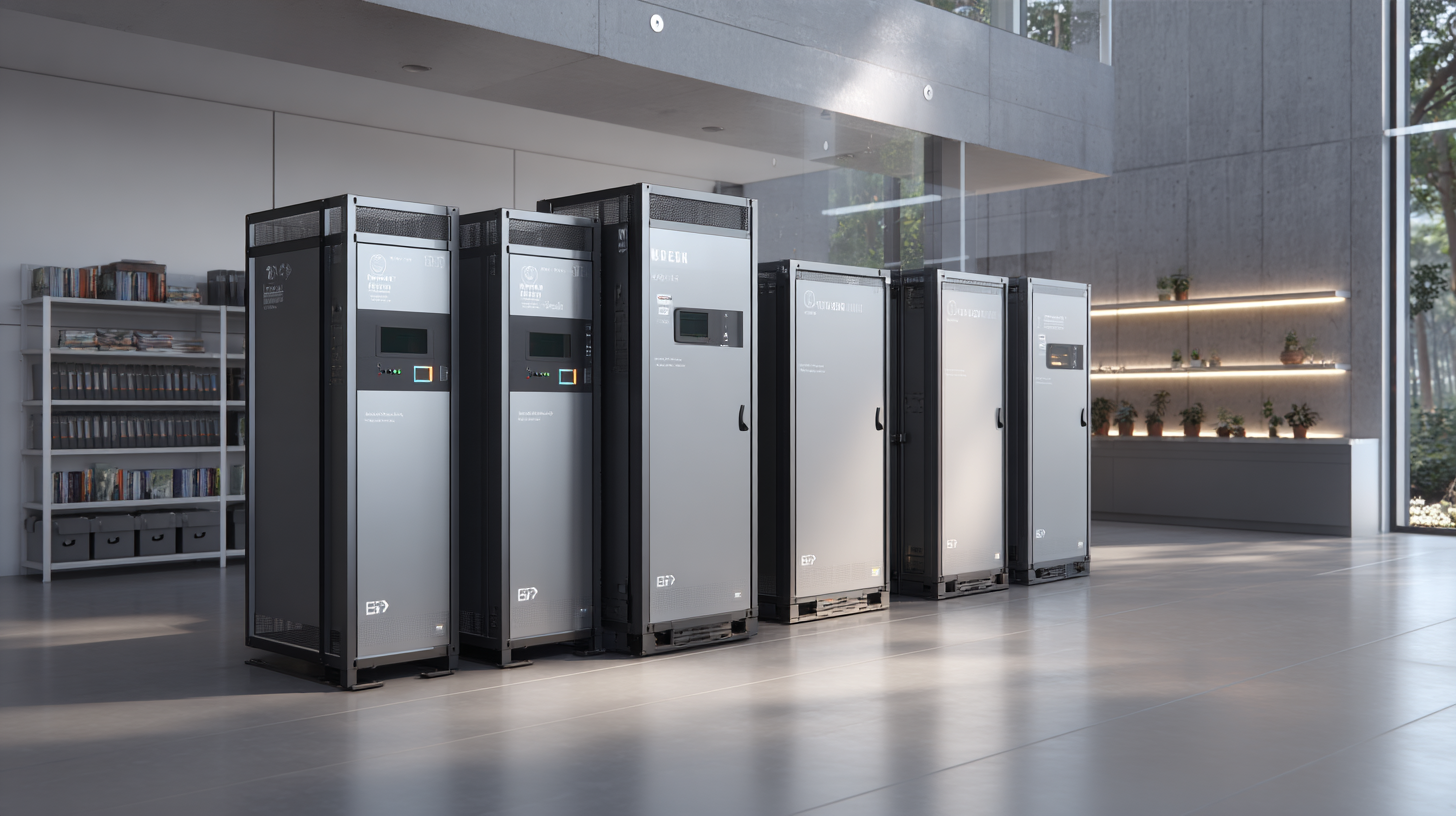The transition to a sustainable energy future is heavily reliant on advanced technologies, particularly power storage systems, which play a crucial role in enhancing renewable energy integration and grid reliability. According to a recent report by the International Energy Agency (IEA), global investment in energy storage is projected to exceed $250 billion by 2025, driven by increasing demand for flexible and resilient energy solutions. The growing emphasis on reducing carbon emissions, coupled with government incentives, has further accelerated innovations in battery technologies, paving the way for more efficient, longer-lasting power storage systems. Research from BloombergNEF indicates that battery capacities are expected to grow 30-fold by 2030, highlighting the vital role power storage plays in managing energy supply and demand dynamics. This dramatic evolution in energy management not only supports the adoption of renewable resources but also strengthens energy security, promising a more sustainable future.

In today's rapidly evolving world, energy management has become a crucial component for both individuals and businesses aiming to thrive in a sustainable future. With the increasing demand for energy and the pressing need to combat climate change, effective energy management practices are essential. These practices not only help in reducing energy costs but also minimize carbon footprints, fostering a healthier environment.

Cutting-edge power storage systems play a vital role in this transformation. They enable the efficient use of renewable energy sources, such as solar and wind, by storing excess energy for later use. This flexibility allows for a more reliable energy supply and encourages the integration of cleaner energy into our daily lives. By understanding and implementing advanced energy management strategies, we can ensure a stable and sustainable energy future while contributing to global efforts in resource conservation and environmental protection.
Power storage systems play a critical role in enhancing energy efficiency, especially in the realm of renewable energy. By integrating battery storage with renewable sources like wind and solar, energy systems can store excess energy generated during peak production times. This stored energy can then be utilized during periods of high demand, ensuring a continuous and reliable energy supply. The strategic design of these systems not only contributes to grid stability but also optimizes the overall energy management process. As renewable energy capacity continues to grow, the need for advanced storage solutions becomes more paramount, enabling a sustainable energy landscape.

Recent advancements in energy storage technologies, from lithium-ion to flow batteries, showcase the diverse options available for enhancing energy efficiency. These innovations are crucial for emergency power supply in isolated networks and for increasing the reliability of power systems. A comprehensive assessment of energy storage mechanisms reveals their advantages and challenges, highlighting the need for tailored solutions that fit specific renewable energy contexts. As the market for home energy storage systems expands, it is evident that integrating efficient power storage will shape the future of energy management and contribute significantly to a sustainable future.
The energy storage sector is witnessing a transformative wave, driven by cutting-edge technologies that are redefining how we manage power. According to a report by Bloomberg New Energy Finance, global energy storage capacity is expected to reach over 1,000 GWh by 2040, a significant increase from 175 GWh in 2020. This surge is fueled by advancements in battery technologies, particularly lithium-ion and solid-state batteries, which offer higher energy densities and improved safety profiles. These innovations are critical in supporting renewable energy integration, facilitating a more reliable and efficient energy grid.
Furthermore, the rise of smart energy management systems is enhancing the effectiveness of energy storage solutions. A report from Wood Mackenzie projects that the global market for energy storage systems will reach $2.5 billion by 2023, indicating a strong shift towards decentralized energy management. These systems utilize artificial intelligence and machine learning algorithms to optimize energy consumption and storage, ensuring that surplus energy generated from renewable sources can be effectively stored for later use. As these technologies continue to evolve, they promise to play a pivotal role in creating a sustainable future, aligning energy storage capabilities with the growing demand for clean energy solutions.
| Technology | Energy Capacity (kWh) | Charge/Discharge Efficiency (%) | Lifespan (Years) | Application |
|---|---|---|---|---|
| Lithium-ion | 10 | 90 | 10-15 | Electric Vehicles |
| Flow Battery | 20 | 75 | 10-20 | Grid Storage |
| Solid State | 15 | 85 | 10-30 | Consumer Electronics |
| Lead-Acid | 8 | 70 | 3-5 | Backup Power |
| Supercapacitor | 5 | 95 | >20 | Rapid Charge Applications |
The transition to sustainable energy practices is having a profound impact on environmental conservation. According to the International Renewable Energy Agency (IRENA), global renewable energy capacity has grown by 9.6% in recent years, providing cleaner alternatives that significantly reduce greenhouse gas emissions. The shift to renewable energy sources such as solar, wind, and hydropower not only lowers our dependency on fossil fuels but also enhances biodiversity by minimizing habitat destruction associated with traditional energy extraction methods.
Implementing cutting-edge power storage systems plays a crucial role in this transformation. The U.S. Energy Information Administration (EIA) reported that energy storage technologies can increase grid resilience and reliability. By efficiently managing energy supply and demand, these systems enable a smoother integration of variable renewable sources, ensuring that clean energy is available when needed. This is essential for both reducing carbon footprints and promoting a sustainable future.
Tips for contributing to sustainable energy practices include investing in energy-efficient home appliances, utilizing public transportation, and advocating for local renewable energy initiatives. Additionally, consider installing solar panels or participating in community solar projects to directly support clean energy development and reduce overall energy consumption in your area. Transitioning to these practices not only conserves the environment but also fosters a healthier planet for future generations.
The future of power storage systems is poised to undergo a significant transformation as innovations in technology and materials accelerate. One of the key trends is the increased adoption of advanced lithium-ion batteries, which offer higher energy densities and longer lifespans. Additionally, emerging alternatives such as solid-state batteries and flow batteries are gaining traction, promising not only enhanced safety but also better performance in diverse environments. These advancements are expected to decrease costs and expand the applicability of storage systems across various sectors, including renewable energy integration and electric vehicles.
Global implications of these trends are profound. As nations strive for sustainability and energy independence, efficient power storage solutions will play a crucial role in managing energy loads and mitigating the intermittency of renewable sources like solar and wind. Furthermore, the expansion of electric mobility is closely tied to the evolution of storage technologies, which will influence infrastructure development and energy policies worldwide. Countries that prioritize investment in cutting-edge power storage systems may lead the transition toward a more sustainable global energy landscape, providing a competitive edge in the economically burgeoning green technology sector.